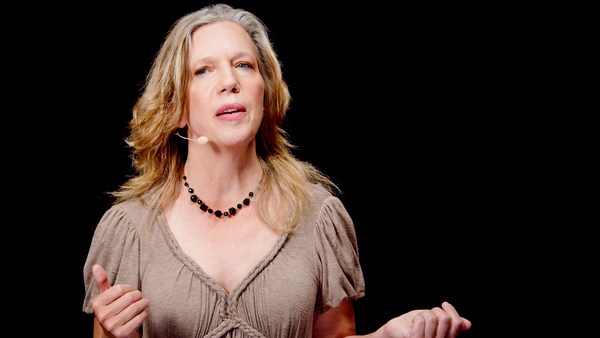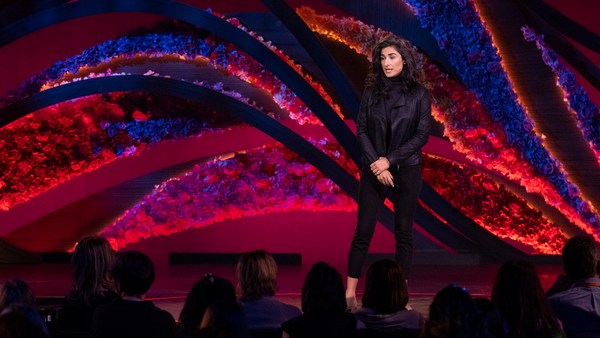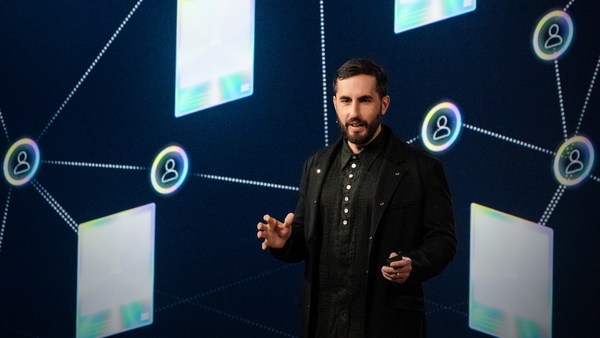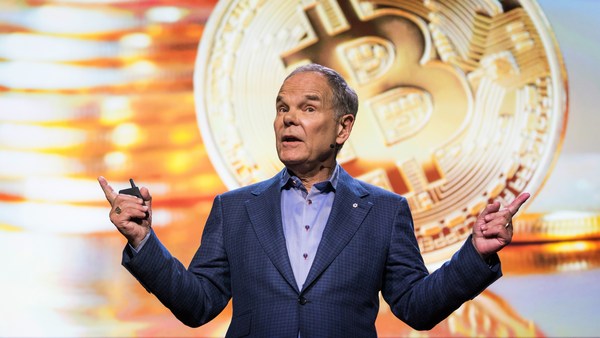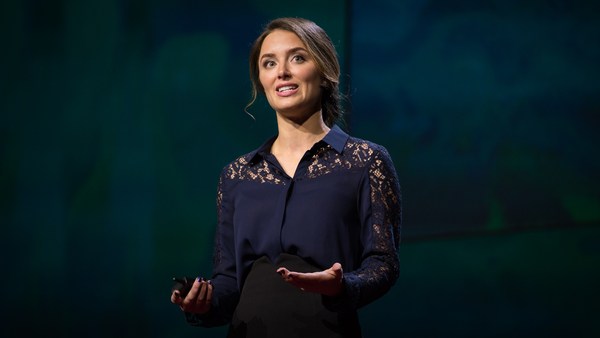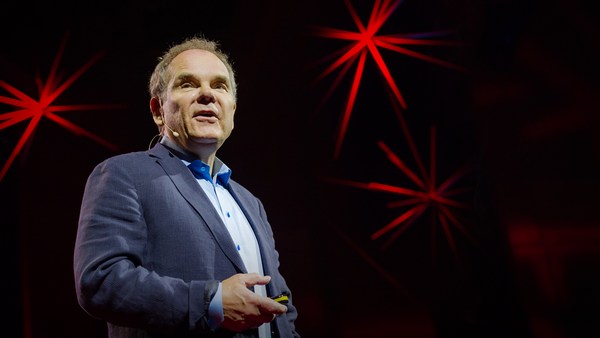Power is shifting. History has taught us that technology will take power from the establishment, and give it to individuals. Give it to people. This has been true since before the advent of the printing press. Long before. But the path is not a straight line, there are always bumps and detours along the way, and the internet is no exception.
The original promise of the internet was to push power down into the hands of people, and to all of us. And it has. It has weakened yesterday's gatekeepers, music labels, news publications, TV networks. They've all lost much of their power and prestige. But at the same time, the internet has created a new establishment. It's pushed power into the broadest of platforms, like Instagram. This was unexpected.
But I believe that, over the broad arc of history, that this unexpected outcome, this concentration of power in the hands of a handful of platforms, is not going to be a long-lasting trend. Over the next ten years, we're going to see a dramatic shift in power, away from platforms like the one that my team and I are responsible for, and to a group of people I like to describe as "creators."
Let's define a creator as someone whose personality is their brand, and who uses platforms like Instagram to turn their passion into a living. Creators like Blair Imani, D-Nice and Benny Drama. They generate new ideas, push boundaries, drive culture. We follow them just to see what they'll do next. What if we imagine a world where creators actually own their relationship with their audience -- they didn't rent it, they owned it -- and where all of us were invested in their success? A world where the platforms acted more like platforms, because we can and should do more to support creators.
It's been maybe 50 years since the birth of the internet, and we can all see how much it has affected almost every industry, particularly the attention-based industries: music, news, TV, art -- they've all been disrupted. Musicians like Childish Gambino, Frank Ocean and Chance the Rapper, they found ways to reach an audience without a label. When Jessica Yellin was the chief White House correspondent for CNN, back in 2012, that network averaged about 670,000 viewers. Today, she reaches nearly that many people on Instagram alone. Star athletes are more relevant than the teams that they play for, which would have been unheard of 50 years ago. LeBron James has more followers on Instagram than the Lakers do. Cristiano Ronaldo makes more on Instagram, it's been reported, than he did from Juventus.
OK, so I and my team, we work at the point where creators and audiences meet. And platforms like Instagram have done a lot to empower creators over the last ten years. My team is obsessed with finding more ways to support creators. But if we accept that as power continues to shift toward creators, or that that's going to happen, because technology will continue to change, then we're going to have to rethink some things, because today, creators are too dependent on too few platforms, then our role, as platforms, has to change.
Now, I'm not saying that platforms are going to go away. New platforms will certainly rise, old platforms will certainly fall. But all platforms will -- and you're already seeing this happen -- understand the value that creators create. And so they'll be increasingly interested in handing more power over to creators. Now, this might be surprising, coming from me. But I think this is actually a really good thing. I think that over the long run, what's best for creators is going to be best for platforms like the one I'm responsible for. The more art there is, the more there's an exchange of ideas, the more creativity there is in the world, the better off we all are.
But we haven't always seen the world this way. For the five years before I joined Instagram, I was the head of News Feed at Facebook. I was in that role during the US presidential election in 2016. I was in that role during Cambridge Analytica. I traveled around the world, talking to publishers and policymakers, most of whom took the time to tell me everything that we were doing wrong. I'm sure some of you hold my company and me personally accountable for all sorts of things. But I can tell you we learned an immense amount from those experiences. I know I personally did. There were a lot of lessons. And one of those lessons was how important stability and predictability were to publishers. No publisher can build a business on a platform that's too volatile, and no business should be entirely reliant on any one platform. The same is true for creators.
Today ... Whoo. We’re on the precipice of an entirely new internet, built on fundamentally different technology than the tools of yesterday. New technology is making new ideas possible. Cryptocurrencies, social tokens, nonfungible tokens, decentralized autonomous organizations -- that one really rolls off the tongue -- smart contracts -- these are a group of ideas known in the industry as web3. And each and every one is built on a foundation called the blockchain. The important thing to understand about blockchains is that they remove the need for an intermediary. What do I mean by that? Well, each and every one of you, I am sure, at some point, has put money in a bank account. And when you did that, you were actually trusting an intermediary -- in this case, a bank -- to take care of that money on your behalf. A blockchain allows you to hold digital money -- in this case, a cryptocurrency -- without the need to trust an intermediary or a bank. And so a blockchain offers the potential for a transfer of power. What's interesting is not holding digital money -- there's nothing new about that idea. What is interesting is how power is shifting from those who historically held it to those who have not.
There's an opportunity here. We can use this technology to help creators establish direct financial relationships with their audience, independent of any platform. Today, for many creators -- not all, but many -- subscriptions are an important part of their business. And there are really great subscription platforms out there -- Patreon, Substack, YouTube memberships. They provide great services. For you, as a creator, they host your content, they distribute that content, they handle payments on your behalf. What does it cost you? You're beholden to each platform where you show up. You are playing by that platform's rules. So what if we imagine something different? A subscription between a creator and a fan, still, but one independent of any platform, but that works across all platforms.
On a five-year time view, the blockchain offers the opportunity for creators to directly own their relationship with their subscribers. Picture this. Lisa is a country artist from Georgia, and she wants to sell subscriptions. Maybe she wants to share songs that she's working on before she's ready to release them to the general public. And we all love Lisa, and we want to subscribe to Lisa. What if Lisa can sell a token -- think of it as a membership card -- for a few bucks, to anyone who wants to subscribe. What if every major platform -- Instagram, Twitter, YouTube, Facebook, they all agree to honor those membership cards. Then, in that world, if Lisa first establishes herself on Instagram, but later, she wants to branch out into Twitter, she can bring Team Lisa with her, she can bring her subscribers with her. And all of us, because I’m sure we love Lisa, we only need to subscribe once, not once per platform. That' a big deal.
And even more important, if we build these membership cards on a blockchain, no company can ever take Lisa's community away from her. Instagram could -- poof! -- disappear tomorrow and she would maintain her relationship with her subscribers, and she would maintain her income.
We can take this idea further. As we look to the future, it's increasingly clear that it's going to bring more and more volatility, as technology changes more and more quickly. For creators, this means new talent can succeed faster than ever before, and at an incredible scale. It also means that we will never again see the stability in careers that our grandparents saw.
There's a problem. One challenge with this future is that our financial infrastructure, particularly the way that we finance our ideas, largely predates the internet. Today, the predominant way that businesses raise money, and the only real option available to creators, is to borrow it as debt. And as to any of you who have ever struggled with a mortgage payment or a student loan or a car payment can attest to, there’s a lot of downside to debt. My first experience with debt was a 13-year old '86 SAAB 9000 Turbo. Gray car, saggy roof, the Knight Rider lights in the front -- I love that car. But it was hard. So what if, instead of debt, we invested in people, the way we invest in start-ups? As a creator, you should be able to use technology to raise money to finance your ambitions. If you so choose, you should be able to sell equity in your future. And you should be able to set the terms. For a 100,000-dollar investment, you’ll pay out five percent of what you make for the next 10 years. And we can codify those terms in a smart contract. We can connect the RevShare you make on YouTube, the subscription fees you make on Patreon, the merchandise sales you make on Instagram, all to one token that anyone who believes in you could buy. And in doing so, you'd be giving your audience the opportunity to share in your success, to buy a share, to build equity in the creator they know, love and trust. And Lisa would be able to build a community of people who are directly invested in her success. And with the money she raised, she'd have more time to explore, more time to create.
Meta can't build this. No single company can. For ideas like these to happen, we need to come together across the industry. And we need pioneers. We need established creators to prove the model at first. But the idea isn't interesting until it's available to everyone.
I sometimes think about what my path might have looked like, had that opportunity been available to me. Instead of bartending and designing websites on the side and taking out a lot of student debt, I might have sold equity in my future. What might you have done? Who knows? But what's exciting about this idea is not the opportunity it affords an upper-middle-class white kid from the suburbs of New York City. It's the opportunity it affords Oumi Janta, a roller-skating phenom in Berlin; Terri Loewenthal, one of my favorite photographers in California. And if we build this, we'll have helped to realize the original promise of the internet. We'll have to push power into the hands of people ... to creators. Creators will be able to own their relationship with their audience, and anyone who wants to invest in creativity will have the opportunity to do so. We'll have created a world where anyone with a compelling idea can turn their passion into a living, which, at the same time, effects possibly the greatest transfer of power from institutions to individuals in all of history.
Thank you for listening,
and thank you to you creators out there for inspiring the rest of us.
(Applause)
